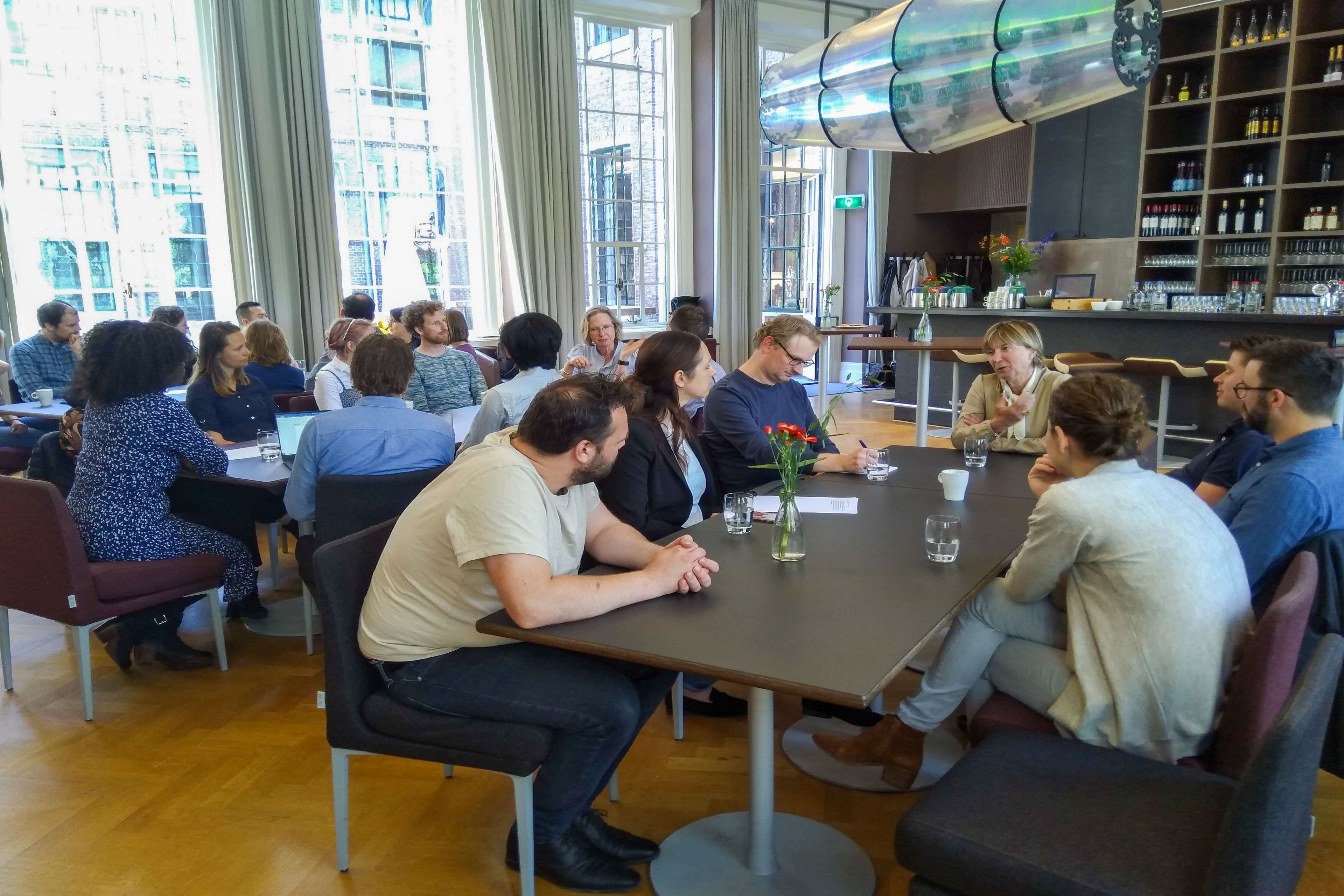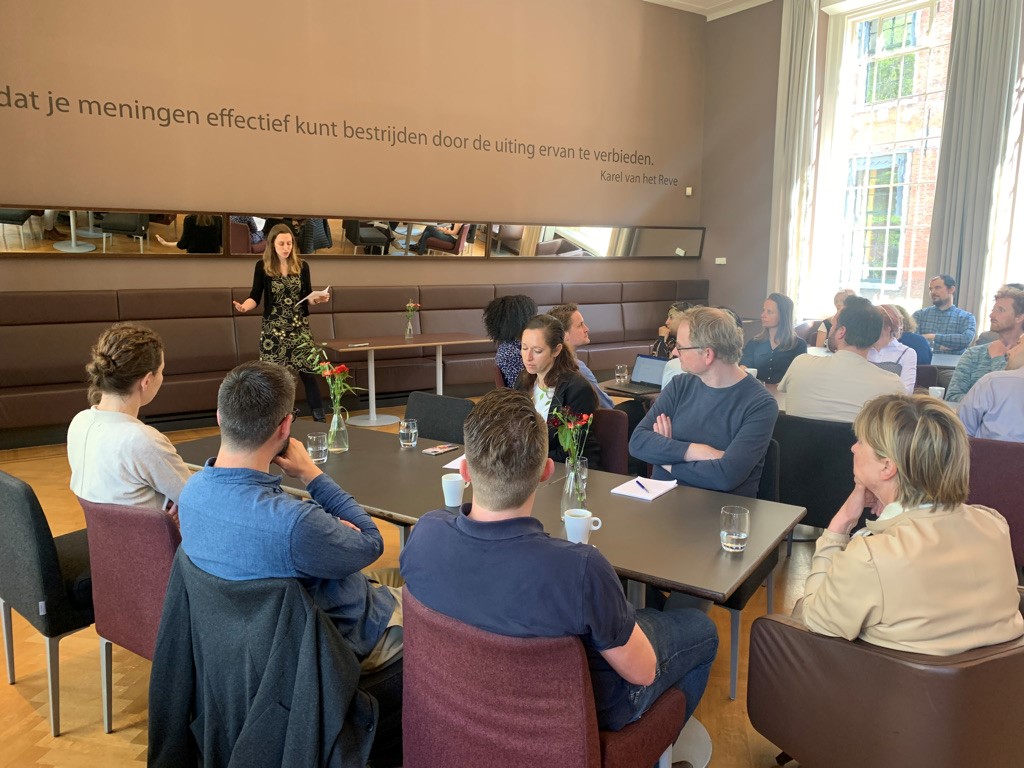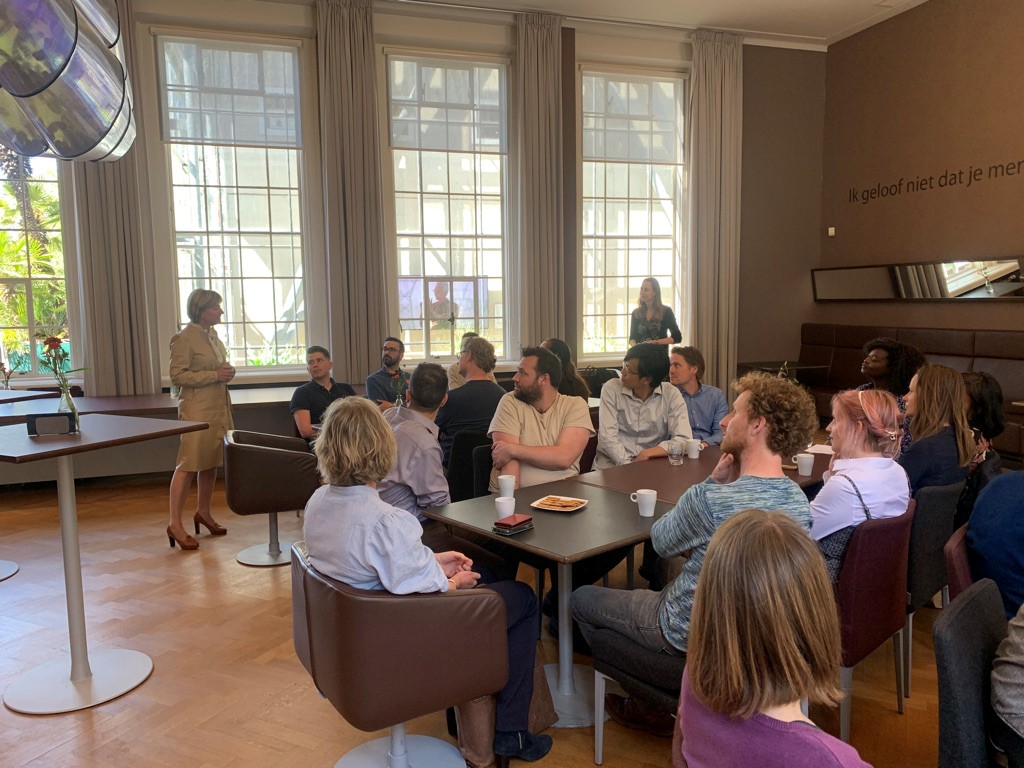Social Safety
Social safety is all about creating a supportive community
Young Academy Leiden on Social Safety
November 2022
At the Young Academy Leiden, we care deeply about fostering social safety at our university. Increasing social safety is of particular importance to early career scholars as they often find themselves in a vulnerable position without a permanent contract, or with a dependence on superiors for progressing their careers. We are happy that the topic of social safety is also a priority for Leiden University, as confirmed during a recent event (read more about it down below) we organized on this topic.
The recent case of a full professor at our university being removed after extremely inappropriate behaviour underscores the urgency of acting on this topic. The shocking number of names mentioned when employees speculated about the identity of the professor in question shows that this case is not an exception, but merely the tip of the iceberg.
We consider changes in organizational structure and culture of utmost importance in order to prevent inappropriate behaviour from taking place and to solve problems at an early stage. We are therefore in touch with the university administration to raise the issue from the perspectives of early career researchers and to contribute to the ongoing process of improving social safety at Leiden University. Furthermore, we will continue to engage the community of early career scholars in the conversation on social safety at Leiden University.
Young Interfaculty Lunch on Social safety
Inspiring conversations during Young Interfaculty Lunch: “Social safety is all about creating a supportive community”
Social safety at the workplace is a topic that affects us all. A working environment in which everyone feels safe and respected is crucial for employees’ overall well-being and health, job satisfaction and productivity. Young researchers sometimes face undesirable behaviors by colleagues or supervisors. For the Young Academy Leiden (YAL), creating a safe working environment at Leiden University is a priority that needs continuous attention.
On Thursday 12 May 2022, we organized an Interfaculty Lunch for early career scholars at Leiden University and the LUMC on social safety. Annetje Ottow (President of the Executive Board of Leiden University), Esther van Opstal (Director of Human Resource Management at Leiden University) and Aya Ezawa (Diversity Officer at Leiden University) all joined us to start a dialogue with early career researchers.
As Annemarie Samuels, YAL chair, noted in her opening talk, the immediate reason for YAL to initiate this dialogue was the recent report by the Young Academy Groningen (YAG) on harassment in academia. YAG members conducted interviews with 26 current and former employees of the University of Groningen who experienced harassment, discrimination, power abuse, and bullying. These shocking experiences spurred YAL members into participating in the conversation on social safety at our own university from the perspective of early-career scholars, for example through a follow-up of the Leiden University personnel monitor (employee satisfaction survey). University leaders are not sitting still, either, as shown by this interview with Annetje Ottow. Yet, a lot of work remains to be done in our academic community to provide a safe and inclusive work environment for all at Leiden University.
Bystanders
During our Interfaculty Lunch, we discussed topics such as whom to turn to when we ourselves experience not feeling safe, being harassed or abused. We also discussed how important bystanders are, both if we experience something ourselves and if our colleagues experience something. As a bystander, you can really make a difference. As Martin Berger (one of our YAL members) noted during the lunch: “Social safety is all about creating a supportive community”.
Act sooner rather than later
A supportive community could help to address issues of social safety at an early stage before things get out of hand. The importance of early detection was mentioned as one of the key lessons learned from previous cases. Yet, hesitation to report - common among Early Career Researchers and minority groups because of strong personal dependence and power relationships - does not facilitate such early detection.
Different structures in place
Annetje Ottow, Esther van Opstal and Aya Ezawa all stress there are many places you can turn to if you or colleagues experience an unsafe work environment. Annetje Ottow emphasized that it is important to connect with peers; colleagues that you trust and that you can find strength in. The key message? “Don’t do it alone”. The ‘formal route’ for addressing an unsafe work environment is to go to one’s direct manager (or the manager higher up in the hierarchy if your problem is with your direct manager). If doing that doesn’t feel safe, one may also look for colleagues more ‘horizontally placed’ in the organization. Other people who may help are the confidential counselors, the ombuds officer or your HR department.
What happens after an incident
But is that all effective enough? And how are victims protected? This was one of the issues that felt urgent to many of the participants of the Interfaculty Lunch. As Aya Ezawa noted:“Raising awareness and prevention, as well as actions which promote safety and inclusion are key. I also advise departments after an instance of harassment has occurred. It is of course key to report these and file a complaint. However, filing a complaint does not always resolve tense relations. It is very important to improve strained relations and make the environment safe again, and we offer support and advice to departments where needed.”
To conclude, promoting social safety and preventing harassment and abuse are crucial to us all. All agreed that our Interfaculty Lunch should not be the end of the conversation; but that it is vital that we take action on this topic in all layers of the organization.




